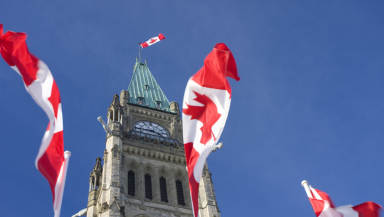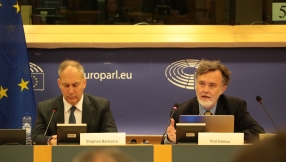
The Evangelical Fellowship of Canada has raised concerns about recommendations presented to the Canadian government calling for the removal of charitable status to religious charities and anti-abortion organizations.
The potential negative impact not only on the religious sector but the many people it serves would be immense, the group warns.
Details are buried within hundreds of recommendations made in a Finance Committee report tabled in the House of Commons on Dec. 13, 2024, which is part of a consultation process before the next federal budget.
Recommendation 429 calls for the government to "no longer provide charitable status to anti-abortion organizations" and Recommendation 430 wants to amend the Income Tax Act to "provide a definition of a charity which would remove the privileged status of 'advancement of religion' as a charitable purpose," stated the EFC.
Both recommendations are found in the report under Chapter Five, "A Competitive Fiscal Policy, Sustainable Finances and Efficient Government Operations."
"Federal taxation plays a pivotal role in funding public expenditures and directing economic activity to sustain and enrich the Canadian economy," states the chapter's short preamble.
"Personal income tax is the largest source of government revenues in Canada, followed by corporate income tax. Tax policy is also a major mechanism to motivate taxpayers to engage in activities that are deemed beneficial to society or, on the contrary, dissuade taxpayers from engaging in activities that are thought to be harmful to society."
The EFC believed the wording of the recommendations echoed the British Columbia Humanist Association's written submission to the committee. (The consultation heard from many businesses, schools and non-profit organizations offering written submissions with differing interests.)
The finance minister is not obliged to adopt the recommendations for the spring budget, but the EFC remains concerned about the issue, calling the fact that a parliamentary committee involving all major political parties had called for such changes "significant" and indicative that the parties supported the ideas.
"The Conservative Party has a dissenting opinion in the report, and the NDP and the Bloc Quebecois have supplementary opinions, but none mention or oppose these charitable status recommendations in the main report," stated the EFC. "These recommendations may have been overlooked among the 462 recommendations made, but none of the parties expressed opposition to them.
"This change, if adopted, would have a far-reaching and devastating impact — on religious charities, the people they serve, and Canadian society. Just over 40% of Canada's registered charities advance religion. This proposal would destabilize the charitable sector in Canada."
Furthermore, the EFC opined that committee recommendations can serve as a "trial balloon."
"If a recommendation seems widely supported, or at least not opposed, it may encourage the government to move ahead with it," the Evangelical body noted.
"This is an important time to ensure MPs hear the concerns of Canadians about this proposal, now that the Finance Committee has put it on the table. It's more effective to prevent these recommendations from being introduced in a bill than to ask for them to be removed once the bill has been introduced."













